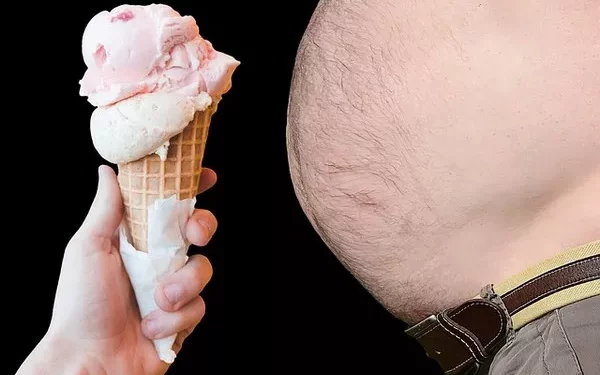A groundbreaking study by Rutgers University suggests that stress hormones, not insulin resistance, may be the key drivers behind obesity-related diabetes. This new perspective challenges long-held beliefs about the role of insulin signaling and could lead to novel treatments targeting stress reduction.
Published in Cell Metabolism, the research introduces a paradigm shift in how we understand the connection between obesity and diabetes. While previous theories focused on impaired insulin signaling within liver and fat cells, the study reveals that overeating activates the body’s “fight or flight” response, triggering an increase in stress hormones like norepinephrine and epinephrine. These hormones, the researchers found, inhibit insulin’s effectiveness—despite the insulin signaling pathways remaining intact.
Christoph Buettner, chief of endocrinology, metabolism, and nutrition at Rutgers Robert Wood Johnson Medical School and the study’s senior author, explained, “Given the staggering cost of diabetes in the U.S., exceeding $300 billion annually, understanding its root causes is critically important.”
The research team discovered that, contrary to past assumptions, the body’s sympathetic nervous system is a significant factor in the development of obesity-induced diabetes. Overeating triggers a spike in stress hormones, which interfere with insulin’s ability to regulate blood sugar and fat levels, contributing to insulin resistance.
Key Findings: Stress Hormones, Not Insulin, Drive Disease
In their experiments, the researchers used genetically engineered mice that were unable to produce stress hormones outside of their brain and central nervous system. When these mice were fed a high-fat, high-sugar diet, they became as obese as normal mice but did not develop metabolic disease or insulin resistance. This breakthrough suggests that it is not the excess fat or food intake that causes diabetes, but rather the inability to generate stress hormones that impede insulin action.
The study’s implications are profound, offering insights into why some obese individuals develop diabetes while others don’t, and why stress can exacerbate the condition—even in people who experience little weight gain. Buettner emphasized that stress, in all its forms—financial, emotional, or physical—plays a pivotal role in the onset and progression of diabetes.
“Stress and obesity essentially work through the same mechanism to cause diabetes—through the heightened release of stress hormones,” Buettner said. “Our findings suggest that the same biological processes that drive diabetes in people under chronic stress also play out in individuals with obesity.”
Revolutionizing Diabetes Treatment
The study opens new therapeutic possibilities, suggesting that drugs designed to reduce stress hormones could offer a more effective treatment for diabetes than those aimed at improving insulin signaling. However, existing medications that block catecholamines—stress-related hormones—have not shown major success in treating diabetes. Buettner speculates that this may be due to the complexity of how these drugs affect the brain and body, or because they don’t target the right receptors.
Future research will focus on human studies to confirm these findings and explore the role of stress hormones in various types of diabetes, including Type 1 diabetes. Buettner and his colleagues are also investigating whether short-term overfeeding—such as the weight gain some experience over the holidays—can trigger increased insulin resistance through elevated sympathetic nervous system activity.
Ultimately, the findings could lead to innovative treatments that focus on reducing stress hormones, marking a significant departure from current approaches that focus primarily on insulin regulation.
“We hope this study provides a new way of thinking about insulin resistance and offers new therapeutic approaches that do not rely solely on enhancing insulin signaling,” Buettner concluded.
This new research may redefine how the medical community approaches the treatment of diabetes, offering a potentially more holistic solution that addresses the root causes of insulin resistance.
Related topics:
Blacktown Encourages Early Diabetes Detection with Free Screening Event
Migration with Diabetes: Stories of Struggle and Resilience in the Face of Displacement
World Diabetes Day 2024: Advancements in Cell and Gene Therapy for Diabetes Treatment



























